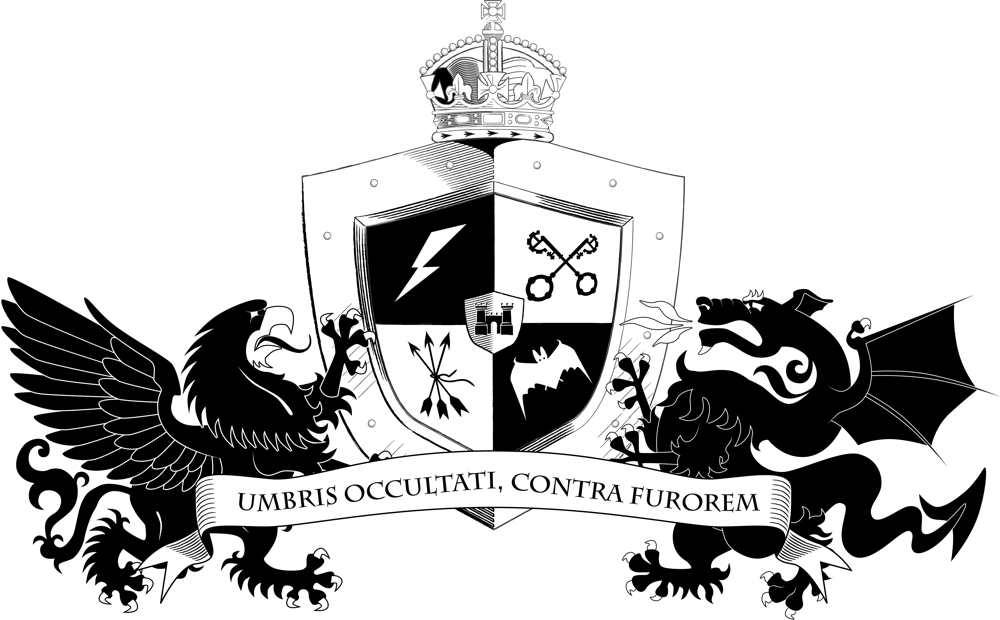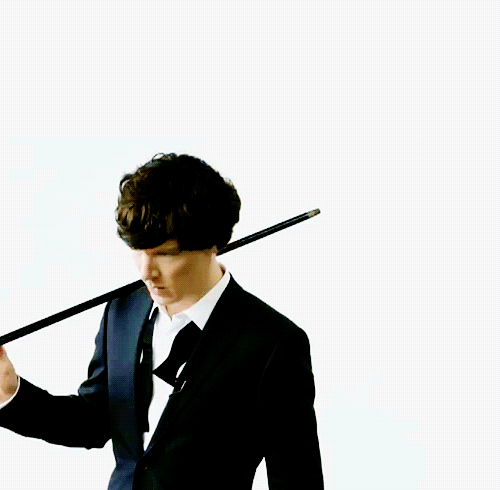I’m sitting in my fourth grade classroom, picking at a bit
of dried glue on my desk. Across from me is Matt, a tall skater boy who belongs
to the popular-kid posse but bent the Cool Rules enough to help me with long
division. He's gone back to being surly now. Across the room, someone
giggles.
Our desks are arranged in four-desk pods, and the giggle
came from the one diagonally across from mine. Two boys crumble bits of their
eraser and throw it at Jess, taking advantage of Mr. P’s turned back.
Jess’s head is bowed, blonde hair falling over her glasses as she tries to
ignore them.
“Pick your nose!” one of them says in a carrying whisper. He shifts his wicked glare from Jess to me, challenging my temper.
Tears drop onto the stiff, glittery face of the Siberian tiger
on Jess's shirt, and I go hot with anger. I clench my teeth and glare back down at
my desk. I want to yell at them, but if I do I’ll only cry, and if I cry I’ll probably
get in trouble for being so easily provoked.
I’m always easily provoked. I am, as my grandfather would
say, pugnacious. After a while,
though, you either fight back or shut down, and I’m years from shutting down.
Mr. P finishes pulling our composition books from the file
cabinet and gives the boys a look. He’s the nicest teacher I’ve ever had, but I wish he’d let me and
Jess sit together. He can’t, really. The desks are alphabetical, and despite
our names both starting with “Har-”, the luck of the numbers has us sitting
half a classroom apart. My desk is closest to the door. I can’t wait to get out of
here.
Mr. P hands out the composition notebooks, and after
yesterday’s class, my face is still burning. I wish Jess hadn’t raised her hand
to read her story. It had been about us watching a spaceship landing and being
ecstatic when some of our favorite fictional characters stepped out. She cried “Luke
Skywalker!?” and I cried out “Ben!?”
 |
| My childhood love. |
She’d meant the intrepid apprentice from the American Girl
series about Felicity, but there was a boy in the class named Ben—one of the
popular boys—and they were all now convinced I had a crush on him. I’d rather
date the apprentice, who has dark reddish hair that matches his stubborn, fiery personality. Jess knows my taste pretty well. That’s why we’re
friends.
I slide my composition book toward me and open it, letting
myself fall back into the story of kidnapped golden foxes and the young girl
who rides off to find them and save her village. I’m glad Mr. P has us writing
stories. He reads to us too, and pairs us off to read books together so we can
talk about them. I flush, remembering he assigned me to read a book with Ben a
few weeks ago. Ben was nice, and never said anything bad about me
like the other boys did.
He wasn’t brave either, though. He laughed when they said
mean things and never tried to stop them. I remember him standing there when A.J.
spat in my Young Jedi Knights book, and when Josh “accidentally” hit me in the
face with a basketball. Never mind. Ben isn’t nice. Ben is scared.
Instead of thinking about it, I disappear into my story,
imagining the thud of hooves and the warm little crate where the golden foxes
are held, deep inside a cave covered in twisting vines. I don’t come out again
until Mr. P crouches next to me, his hands on my desk for balance. Mr. P is
young—he has long, curly hair he wears back in a ponytail and glasses. He
drives a motorcycle to school and is engaged to the art teacher.
“Lauren,” he says, already smiling. “I read your story so
far and it’s really good. Have you ever thought about becoming a writer?”
I know people write books, but they’ve always been distant,
mythical beings as rare and magical as pegacorns. They’re Authors. I love making up
stories but I didn’t think anyone would like reading them. Mr. P said my
fox story was good, though, and he’s a teacher.
I don’t look around. I don’t want to see my classmates,
whether they’re looking or not. Mr. P hadn’t crouched down at any other desks.
Only mine. I feel strangely triumphant all of a sudden. I’m a horse-loving bookworm and a Jedi-wannabe; I make myself an easy target because I try to be like the
heroines in my favorite books and stand up for other people.
But I have talent.
Have you ever thought
about becoming a writer?
“Yes.” It was almost a lie, since I never though about it
before now, but I don’t want to lose hold of this new possibility blooming
inside me, quietly pushing back the dread. “That’s what I want to do.”
Does Talent Matter?
I was bullied from fourth to eighth grade and books had always been a solace for me, as they are for so many. When I found out I could write them, I knew it was what I wanted to do for the rest of my life.
But what does talent really mean, and does it really matter? Its impact on my life has been both positive and negative, because as much as talent itself helped me to identify and be recognized for my passion, the idea of talent may have held me back.
I'd had attention for writing as a child and teen, and that talent drove me to keep impressing so I didn't lose the one thing that, amid the insults and fistfights, made me feel special. As a middle schooler, my body started reacting to the bullying for me. I dreaded the bus, the cafeteria, the classrooms, and when the stress got too bad, my body produced a fever like a rabbit from a hat. I went home. I wrote.
My youth was my selling point and, like a desperate fashion model, I was determined to cash in before my moneymaker checked out. I felt like it wouldn't be as "impressive" to publish as a bona fide adult. I didn't think I would ever be great, but I didn't just want to be good.
So I wanted to be special instead. S.E. Hinton special. Christopher Paolini special. (Except, you know, continue publishing.)
Talent isn't the end-all-be-all of "making it". After all, every one of us can think of at least five people who are famous despite being talent-less at their chosen field. There's no formula to getting published, though some combination of the following elements is usually quoted in the result:
- Talent
- Hard work
- Dedication
- Skill (gaining/improving)
- Luck
- Connections
- Timing
- Blood
- Sweat
- Tears
- Coffee
 At BaltiCon 2012, +Dave Robison of The Roundtable Podcast interviewed the podcasters, begging the question "Does Talent Matter?" Here's a link to that excellent episode. Few of the responses gave an outright "no"--most people were quick to point out that talent might give writers an extra boost, but needed a lot of elbow-grease to develop it into something like skill. One interesting comment, however, indicated that the perception of "talent" may very well hold writers back.
At BaltiCon 2012, +Dave Robison of The Roundtable Podcast interviewed the podcasters, begging the question "Does Talent Matter?" Here's a link to that excellent episode. Few of the responses gave an outright "no"--most people were quick to point out that talent might give writers an extra boost, but needed a lot of elbow-grease to develop it into something like skill. One interesting comment, however, indicated that the perception of "talent" may very well hold writers back.
Talent!? How can talent hold you back?
Let's return to high school-aged Scribe. I went to a small, nerdy high school that had just opened, and almost everyone who went there was a geek. It was a godsend. For the first time since moving to North Carolina, I didn't get bullied. I made friends--the best friends of my life. Friends who are still with me today (shout out to the Ladies Pendragon). Finally, the shackles of depression and CONSTANT VIGILANCE were falling away. In this new, safe atmosphere my writing flourished. I dreamed up new worlds and characters with my friends. I found my target audience. I expanded to fit my own skin, giving life to the construct that had been holding my place until it was safe to come out.
I studied grammar fiercely and felt secure in my talent as a writer, lavishing in the descriptions of the worlds I wanted readers to see and love as I did. When I was seventeen, I sat down and decided I was going to start My First Novel. Unlike the other times I'd written a couple of scenes, I swore to finish this one.
Three and a half years later, I did. I was in college at this point and started researching agents. I realized my story was far longer than the projected 100k average for fantasy novels. Mine was 150k.
Whatever. I was a good writer for my age. I hacked my book down to 130k and sent off a query. A few weeks later I got a full manuscript request.
Ecstatic, I printed and shipped the manuscript (this was, believe it or not, before most agents accepted emailed files) and dashed down to my local coffee-shop to wave the yellow request slip in front of my writing club and jump up-and-down like a Took on a sugar-high.
Secretly, I thought my youth would still be impressive. Though I was already 22, I was still at university. I still had this delusion that I was a precocious child and my youth was the selling point rather than my skill.
A few weeks later, I got a rejection. It was a form, with a little check mark, and a neat cursive message:
The writing is nice, but the story is too long and slow.
I was annoyed. It was a good story. And it was way shorter and faster than other stories I'd read. AND I WAS TALENTED! After the initial despair, I realized my mistake had been relying on my talent--or my perception of myself as talented--to make up for whatever my writing lacked. Luckily, I had learned two excellent things from that rejection.
- The prose itself was decent (though not amazing enough to carry a slower start like Tad Williams or Jacqueline Carey)
- Talent and passion had let me coast this far, but if I wanted to get published, I needed to start pedaling.
 I was annoyed at myself. If I hadn't been so convinced my talent and youth would get me published, I might have started learning mechanics sooner, started working on how to make my sentences clear and precise, my story structure logical, and my pacing on point. I'd wasted too much time trusting in my +5 Armor of Talent long after the battle against bullies was over. I had failed to hone my skills enough to be comfortable taking that "talent" armor off.
I was annoyed at myself. If I hadn't been so convinced my talent and youth would get me published, I might have started learning mechanics sooner, started working on how to make my sentences clear and precise, my story structure logical, and my pacing on point. I'd wasted too much time trusting in my +5 Armor of Talent long after the battle against bullies was over. I had failed to hone my skills enough to be comfortable taking that "talent" armor off.
Does talent matter?
Yes, it mattered when I was young, but not because it meant I was a good writer: because it meant I had a goal to look forward to when I couldn't stand being inside my own skin. Something to be better at than other people. Part way through eighth grade, when a horrific family event caused me to lose both my best friend and my sense of personal safety, I finally did shut down. I went through class in a daze. I didn't do homework. I didn't see friends. I woke up in the middle of the night and sat on the couch, crying. I thought I was going crazy.
Then, one of my tormentors (who had somehow become friends with my brother) found out and used the worst trauma of my life to ridicule me in front of the entire cafeteria. I hurled my unopened milk at him and stormed out of the cafeteria, past the front desk, and out the front doors, crying so hard I couldn't breathe. I didn't want to be there anymore. I hated that school and I hated what it had made me become. I hated how weak I was and how broken my world felt, how quickly I cried and how often.
My seventh-grade math teacher, (an ex-football player and also a Mr. P) had been overseeing the cafeteria. He'd borrowed my notebook full of stories and drawings the year before, and despite my lackluster grades in math, encouraged me to keep writing and even found a contest for me to submit to. I was almost to the school's front stairs--stairs I'd been shoved down the year before by a kid on my bus--when he stopped me.
"You're going to be a writer," he said.
Tears rolling down my face, I didn't respond to him. I knew what he was afraid of. I've never considered suicide, and I wasn't considering it then; I just wanted out. I went with him to the guidance counselor. They called my mom, who came to pick me up. Before I left, he reminded me again that I was a talented writer, and that was something no one could take away.
Does talent matter?
No. It stopped mattering after that first big rejection, when I realized talent alone would never be enough to get me published. I had to stop thinking about it, or I wouldn't be able to move forward with my work. I wouldn't be able to accept the criticism I needed to improve if I didn't let down the shields a little. I'd always been good at accepting line-notes, but the ideas themselves? I'd never considered those open-season.
I'd constructed my entire identity around writing, down to my nickname: Scribe. It wasn't all I had, but it defined who I was. But my love of writing was deeper than the superficial idea that my talent for it could somehow protect me, somehow make people like and respect me. I love writing because I love the part of myself that creates stories. I love the part of me that can put words on a page and evoke images, create emotion, make it matter. That has nothing to do with talent.
Does talent matter?
Maybe. Now, at 28, I'm too old to be special if I get published. I'm not a prodigy. I'm not even sure I'm talented anymore because I still have this notion that "talent" somehow drives success, and if I'm not successful by now despite all the hard work I've put in since that rejection, I must not be talented. I know that's not true, but getting myself to believe it is sometimes hard, especially when I'm at the bottom of the hill, looking up.
It's a load of crap, really. I don't want to be special because I'm young, or talented "for my age", because that indicates there are insufficiencies elsewhere that people are willing to overlook because I'm not a writer in full blossom yet.
I want to be special because I'm a good writer, and because my stories have meant something to the people who read them. I'm not young anymore, and if I'm not talented I'll just have to work harder to become skilled.
This has not been an easy post to write, but I feel it's an important one. I love writing. I love it enough to let go of my out-dated ideas of talent and what it says about my future, my dreams, and myself.
Do you think talent matters? Why or why not? How has the idea of talent (and having or not having it) affected you as a writer or artist?
**Pictures from American Girl wiki, dosomething.org, and the ilovecharts tumblr



















